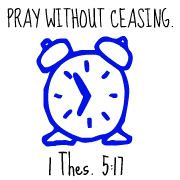YOUCAT Series 15 – What We Believe: I Believe in One, Holy, Catholic, and Apostolic Church
Questions 129 to 145
A close look at the four conditions that establish the truth of the Church and what this means for us as believers.
Q. 129
This question is very well written about here.
Q. 130
See Saint Augustine On Non-Catholic Christians as “Brothers”;
Those then who tell us: You are not our brothers, are saying that we are pagans. That is why they want to baptise us again, claiming that we do not have what they can give. Hence their error of denying that we are their brothers. Why then did the prophet tell us: Say to them: You are our brothers? It is because we acknowledge in them that which we do not repeat. By not recognising our baptism, they deny that we are their brothers; on the other hand, when we do not repeat their baptism but acknowledge it to be our own, we are saying to them: You are our brothers.
If they say, “Why do you seek us? What do you want of us?” we should reply: You are our brothers. They may say, “Leave us alone. We have nothing to do with you.” But we have everything to do with you, for we are one in our belief in Christ; and so we should be in one body, under one head.
And so, dear brothers, we entreat you on their behalf, in the name of the very source of our love, by whose milk we are nourished, and whose bread is our strength, in the name of Christ our Lord and his gentle love. For it is time now for us to show them great love and abundant compassion by praying to God for them. May he one day give them a clear mind to repent and to realise that they have nothing now but the sickness of their hatred, and the stronger they think they are, the weaker they become. We entreat you then to pray for them, for they are weak, given to the wisdom of the flesh, to fleshly and carnal things, but yet they are our brothers. They celebrate the same sacraments as we, not indeed with us, but still the same. They respond with the same Amen, not with us, but still the same. And so pour out your hearts for them in prayer to God.
Saint Augustine, Ex Enarratiónibus sancti Augustíni epíscopi in psalmos (Ps 32, 29: CCL 38, 272-273).
Q. 131
See the Encyclical Ut Unum Sint on the commitment to ecumenism:
2. No one is unaware of the challenge which all this poses to believers. They cannot fail to meet this challenge. Indeed, how could they refuse to do everything possible, with God’s help, to break down the walls of division and distrust, to overcome obstacles and prejudices which thwart the proclamation of the Gospel of salvation in the Cross of Jesus, the one Redeemer of man, of every individual?
Q. 132
See The Church is Holy.
Q. 133
See How Did the Catholic Church Get Her Name?
Q. 134
This is superb:
“I have eagerly desired to eat this Passover with you”. Lord, you desire us, you desire me. You eagerly desire to share yourself with us in the Holy Eucharist, to be one with us. Lord, awaken in us the desire for you. Strengthen us in unity with you and with one another. Grant unity to your Church, so that the world may believe. Amen.
Q. 135
Full text of Pope Benedict XVI’s quote on p. 84.
Q. 136
See Religious Freedom, Path to Peace:
Religious freedom expresses what is unique about the human person, for it allows us to direct our personal and social life to God, in whose light the identity, meaning and purpose of the person are fully understood. To deny or arbitrarily restrict this freedom is to foster a reductive vision of the human person; to eclipse the public role of religion is to create a society which is unjust, inasmuch as it fails to take account of the true nature of the human person; it is to stifle the growth of the authentic and lasting peace of the whole human family.
Also Nostra aetate from Vatican II.
Q. 137
See the Catholic Encyclopedia on Apolstolicity.
Q. 138
See Church Hierarchy:
When he established His Church, Jesus placed the Apostles in charge of caring for the faithful, of teaching them the faith and caring for their souls. And He placed Peter at the head of the Apostles. Through Apostolic Succession, that same hierarchy willed by Jesus, exists today in the Church with the Pope (the successor of St Peter) at her head, leading the Bishops (the successors of the Apostles) who themselves lead the faithful in their local Churches.
Q. 139
See Decree on the Apostalate of the Laity.
Q. 140
See The Church Isn’t a Democracy.
Q. 141
See What is the Role of the Pope and The Magisterium or Teaching Authority of the Church.
Q. 142
Here is a letter about the removal of a bishop who publically went against the magisterium.
Q. 143
A very good discussion on The Church’s Magisterium:
The Magisterium is a wonderful gift from God. Faithfulness to it will preserve us from intellectual slavery to trendy theology, personal prejudices, secularism, and all the other forces that threaten to rob us of the truth.
Q. 144
See The Duties of the Bishop:
The Bishop is a representative of Christ, commissioned to bear witness to him, to speak in his name, and to preserve all that has been handed down by means of the apostolic body. “And what you have heard from me through many witnesses entrust to faithful people who will be able to teach others as well.”
Q. 145
See Chastity, Poverty and Obedience:
Truth Shall Set You Free
“[Jesus’] way of living in chastity, poverty and obedience appears as the most radical way of living the Gospel on this earth, a way which may be called divine, for it was embraced by him, God and man… This is why Christian tradition has always spoken of the objective superiority of the consecrated life” (John Paul II, On Consecrated Life, n. 18).
Don’t let the world get you down. Be strong and know that if you long to give yourself fully to God through chastity, poverty and obedience, you aspire to a noble way. Such was the path chosen by Our Lord. Such is the way he chooses for many privileged souls who come after him.
If you wish to be perfect, go, sell what you have and give to the poor, and you will have treasure in heaven. Then come, follow me (Mt 19:21).
Reflection Questions
• What does the term ‘banality of evil’ mean?
See Eichmann, the Banality of Evil, and Thinking in Arendt’s Thought
• What is the sin of human respect?
See A Reflection on the Sin of Human Respect and its Antidote, the Holy Fear of the Lord
Posted on June 1, 2012, in Apologetics, Catholicism, Christianity, Youcat, Youcat Study Group and tagged Apostolic, Banality of Evil, Believers, Bishops, Brothers and Sisters, Catholic, Catholic Encyclopedia, Chastity, Church, Church Hierarchy, Democracy, Evangelical Counsels, Ex Cathedra, Fear of the Lord, Hannah Arendt, Holy, Human Respect, Jews, Laity, Magisterium, Non-Catholic Christians, Nostra Aetate, Obedience, One, Peace, Pope, Poverty, Religious Freedom, St Augustine, Unity, Ut Unum Sint. Bookmark the permalink. 1 Comment.





Pingback: YOUCAT Study Guide | Thefriendlyblogger's Blog